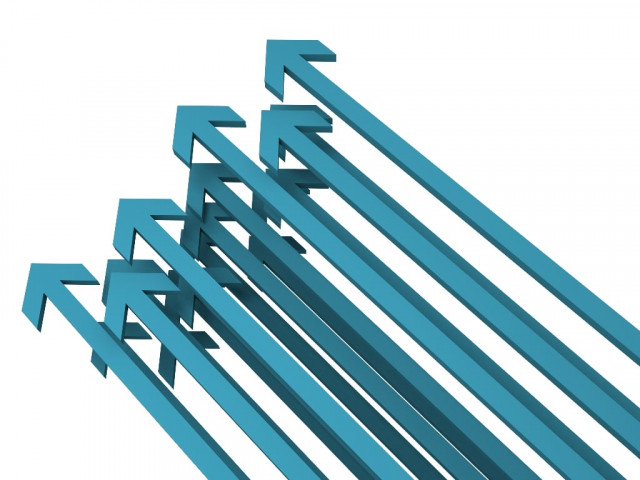Rebound: Inflation slips into double digits again
CPI stands at 10.1% as prices of almost all commodities rise.

After slipping to single digit in December last year, inflation has once again crept to double digits in January compared to a year ago with statistics indicating that the pace of increase can accelerate in coming months.
Inflation, according to the benchmark Consumer Price Index (CPI), the most-watched cost-of-living indicator, rose 10.1 per cent in January over the same month of last year, announced Sohail Ahmad, Secretary of Statistics Division, here on Wednesday.
In December last year, inflation had dropped into single digit after a gap of 25 months, prompting economic managers to claim victory in controlling price hike.
For the fifth consecutive year, people are trying to cope with double digits inflation while the economy is growing at a rate lower than the growth in labour force. Average economic growth in the last four years was less than 3 per cent per year while the labour force was growing at the rate of 3.6 per cent, according to a World Bank report on jobs in South Asia.
The inflation numbers are likely to worsen in February after a significant increase in prices of petroleum and gas products. This is based on a review of the figures compiled by the Pakistan Bureau of Statistics (PBS) shows that prices of almost all commodities rose significantly in January.
Prices of food and non-alcoholic beverages rose 9.3 per cent compared to the corresponding month a year ago. Housing, water, electricity and fuel group charges soared 7.7 per cent. Gas became dearer by 29.4 per cent, kerosene oil 26 per cent and firewood 24 per cent.
Rates of construction material increased around 20 per cent while construction wages rose almost 12 per cent.
The government did not include the increase in electricity bills on account of monthly fuel price adjustment surcharges in CPI calculation, said Arif Cheema, Director General Statistics.
Household servant wages increased almost two-third. In the health group, medicine prices increased 8 per cent and medical equipment became dearer by 25 per cent.
In the transport group, motor vehicle accessories became expensive by one-fifth, mechanical service charges rose 17 per cent and transport service rates went up 11 per cent.
Troubling trend
Analysts give more weight to core inflation, excluding food and energy prices, which is not disturbed by seasonal shocks. Core inflation also remained in double digits at 10.4 per cent.
In yet another depressing development, inflation in January over December rose 1.54 per cent, the highest in the current fiscal year, said Sohail Ahmad. Last month, the monthly barometer had decelerated by 0.7 per cent.
PBS officials said the massive increase in gas prices had actually reversed the trend. Had there been no increase in gas prices, the monthly indicator might have decelerated, said Arif Cheema.
July-January inflation
According to the PBS, average inflation in first seven months (July-January) of the current fiscal year remained at 10.8 per cent as compared to the corresponding period of last year. For the current year, the government has targeted to restrict average inflation at 12 per cent.
Out of 12 groups of commodities, eight groups remained in double digits, said the PBS.
Sohail Ahmad said despite the increase in inflation the good news was that the country had surplus stocks of wheat and sugar.
Published in The Express Tribune, February 2nd, 2012.



















COMMENTS
Comments are moderated and generally will be posted if they are on-topic and not abusive.
For more information, please see our Comments FAQ